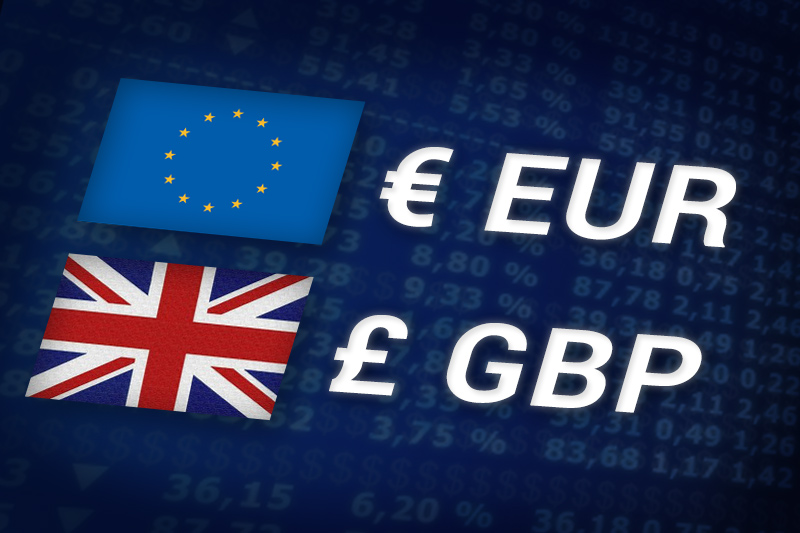Investing.com - The euro trimmed gains against the pound on Tuesday, as a combination of weak euro zone industrial data and uncertainty over a deal to restructure Greek debt weighed.
EUR/GBP pulled back from 0.8391, the pair’s highest since December 13, to hit 0.8364 during European morning trade, up just 0.03%.
The pair was likely to find support at 0.8324, the low of January 19 and resistance at 0.8409, the high of December 30.
Official data showed that industrial new orders in the euro zone declined in November, albeit at a slower pace than expected.
Eurostat said that industrial new orders fell by a seasonally adjusted 1.3%, beating expectations for a 2.2% drop.
The euro had been boosted earlier after preliminary data showed that manufacturing activity in the single currency bloc rose at the fastest pace since August this month, easing concerns over the impact of the region’s debt crisis on the economy.
Markit said that its manufacturing purchasing managers’ index rose to a seasonally adjusted 48.7 in January from a reading of 46.9 in December.
Analysts had expected the index to ease up to 47.4 in January.
On the index, a reading above 50.0 indicates industry expansion, below indicates contraction.
The euro zone services PMI rose to a five-month high of 50.5 from 48.8 last month, surpassing expectations for an increase to 49.1.
Output rose at a robust pace in Germany, which saw the largest increase for seven months, and a modest expansion was also reported in France.
The euro remained under pressure after European finance ministers on Monday rejected an offer by Greece’s creditors to restructure the country’s debt, underlining fears over a default.
The euro was almost unchanged against the U.S. dollar, with EUR/USD dipping 0.01% to hit 1.3011.
Also Tuesday, official data showed that U.K. public sector net borrowing rose less-than-expected in December, but total outstanding debt rose above GBP1 trillion for the first time on record.
EUR/GBP pulled back from 0.8391, the pair’s highest since December 13, to hit 0.8364 during European morning trade, up just 0.03%.
The pair was likely to find support at 0.8324, the low of January 19 and resistance at 0.8409, the high of December 30.
Official data showed that industrial new orders in the euro zone declined in November, albeit at a slower pace than expected.
Eurostat said that industrial new orders fell by a seasonally adjusted 1.3%, beating expectations for a 2.2% drop.
The euro had been boosted earlier after preliminary data showed that manufacturing activity in the single currency bloc rose at the fastest pace since August this month, easing concerns over the impact of the region’s debt crisis on the economy.
Markit said that its manufacturing purchasing managers’ index rose to a seasonally adjusted 48.7 in January from a reading of 46.9 in December.
Analysts had expected the index to ease up to 47.4 in January.
On the index, a reading above 50.0 indicates industry expansion, below indicates contraction.
The euro zone services PMI rose to a five-month high of 50.5 from 48.8 last month, surpassing expectations for an increase to 49.1.
Output rose at a robust pace in Germany, which saw the largest increase for seven months, and a modest expansion was also reported in France.
The euro remained under pressure after European finance ministers on Monday rejected an offer by Greece’s creditors to restructure the country’s debt, underlining fears over a default.
The euro was almost unchanged against the U.S. dollar, with EUR/USD dipping 0.01% to hit 1.3011.
Also Tuesday, official data showed that U.K. public sector net borrowing rose less-than-expected in December, but total outstanding debt rose above GBP1 trillion for the first time on record.
